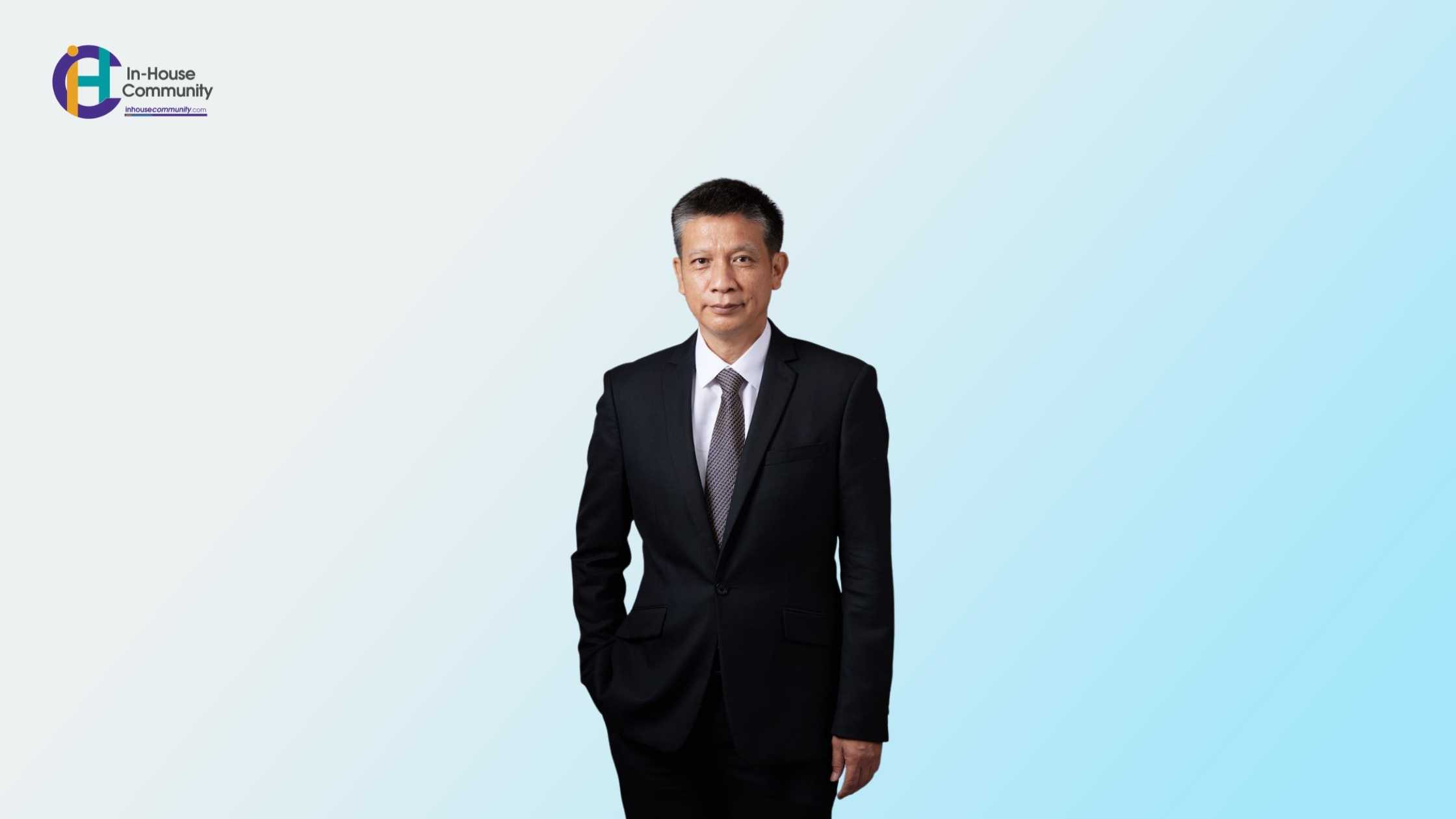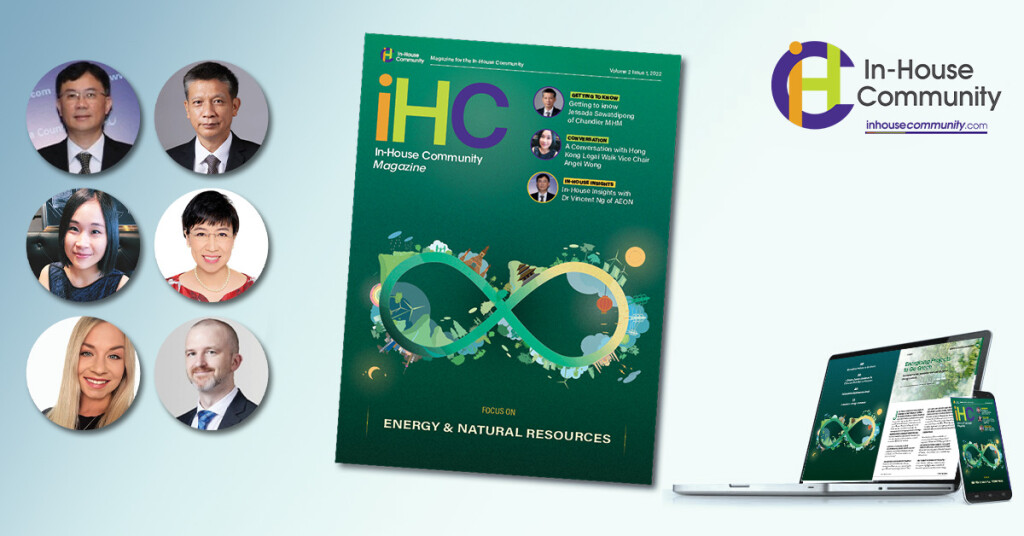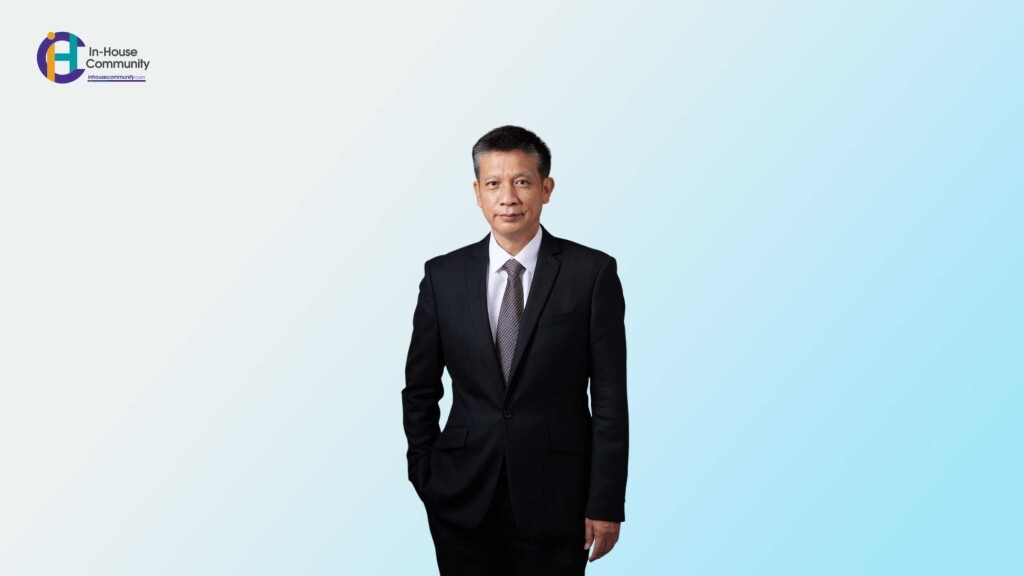
On successfully riding the waves of change in career path and the legal profession.
YOU HAVE ENJOYED AN ILLUSTRIOUS LEGAL CAREER, SPANNING MANY DECADES. CAN YOU PLEASE GIVE US A QUICK TOUR OF YOUR LEGAL JOURNEY THUS FAR?
I grew up in a family where my father and two elder brothers went to law school and worked for the government. With the goal of becoming a judge or prosecutor, I graduated from Chulalongkorn University, passed the Thai bar examination, and obtained two Master of Laws degrees in the USA. While waiting to take the judge or prosecutor examination, I applied to work at Chandler & Thong-ek Law Offices. My intention was to have a short career in private practice before working for the government. It has, however, been a somewhat longer journey than originally planned. I developed my practice over many years with Chandler & Thong-ek Law Offices and became a partner in the banking and finance practice. Chandler & Thong-ek Law Offices subsequently integrated with Mori Hamada & Matsumoto to become Chandler MHM Limited of which I am a co-managing partner.
RETAINING THE BEST STAFF HAS LONG BEEN AN IMPORTANT FACTOR IN MAINTAINING A SUCCESSFUL LEGAL PRACTICE. THIS IS AS IMPORTANT AS EVER GIVEN THE “GREAT RESIGNATION” TREND WE’VE SEEN GLOBALLY AS EMPLOYEES REASSESS THEIR WORK/LIFE BALANCES. WHAT HAS YOUR APPROACH TO TALENT RETENTION BEEN? HAVE YOU NOTICED ANY CHANGES DURING THIS PANDEMIC ERA?
Talent retention has always been very important, especially for professional service firms such as ours. We have not seen any change in terms of turnover; we are fortunate to have a long-standing and growing workforce. Achieving a work life balance is important but can be challenging for legal professionals, which we recognise. We closely monitor individual work levels to ensure that a fair distribution of work is achieved across teams within the office and pay attention to individual career development. I have an “open door” policy allowing lawyers to raise any concerns that they may have. I strongly believe that to work productively and at our best we need to feel valued and be happy in our work environment. It’s important to treat each employee as an individual to understand what we can do to support that person to perform at their best at work. As a firm we also have Town Hall meetings to allow our lawyers to raise any concerns that they may have. The pandemic has changed expectations and each new generation also has changing expectations in relation to work. Working from home became normal during the pandemic, however, we believe that for younger lawyers it’s important for them to work alongside their colleagues in the office. Mentoring and mutual support is more effective if in person and many soft skills are developed when working in an office. We are investing more in training and development and are responding to feedback from our lawyers on how to support them in developing their careers.
The pandemic has changed expectations and each new generation also has changing expectations in relation to work. Working from home became normal during the pandemic, however, we believe that for younger lawyers it’s important for them to work alongside their colleagues in the office.
GIVEN YOUR LONG AND SUCCESSFUL CAREER HISTORY IN THAILAND, YOU’LL HAVE WITNESSED FIRST-HAND THE EBBS AND FLOWS OF THE LEGAL MARKET. WHAT TRENDS ARE YOU CURRENTLY SEEING?
The most notable trend is the growing sophistication of legal services provided in Thailand. One aspect of this is the increasing trend for Thai lawyers to study and qualify overseas, but also the demand for legal services is changing due in part to increasing regulation and changes in technology. We are having to develop many new areas of specialist practice and sector expertise in response to the changing regulatory and business environment. We have recently developed specialist areas of expertise in relation to anti-trust, aviation, data protection, debt restructuring, Environmental Social Governance (ESG), and finance to advise on more sophisticated financial products. In response to the requirements from our clients our disputes team has also developed a range of specialisms including marine, insurance and tax disputes. Our criminal practice is also growing due to increasing awareness of white-collar crime. Lawyers, therefore, need to collaborate more with colleagues from different areas of practice and other offices to provide a more sophisticated and comprehensive service. In addition to developing a broader range of areas of specialist expertise we also focus more on investing in the firm infrastructure to improve the delivery of our service. There is, therefore, increasing expectation for lawyers in Thailand to develop their legal and business expertise at the same time. Our lawyers are increasingly involved in CSR, diversity and community initiatives which is also an increasing trend which the firm fully supports.
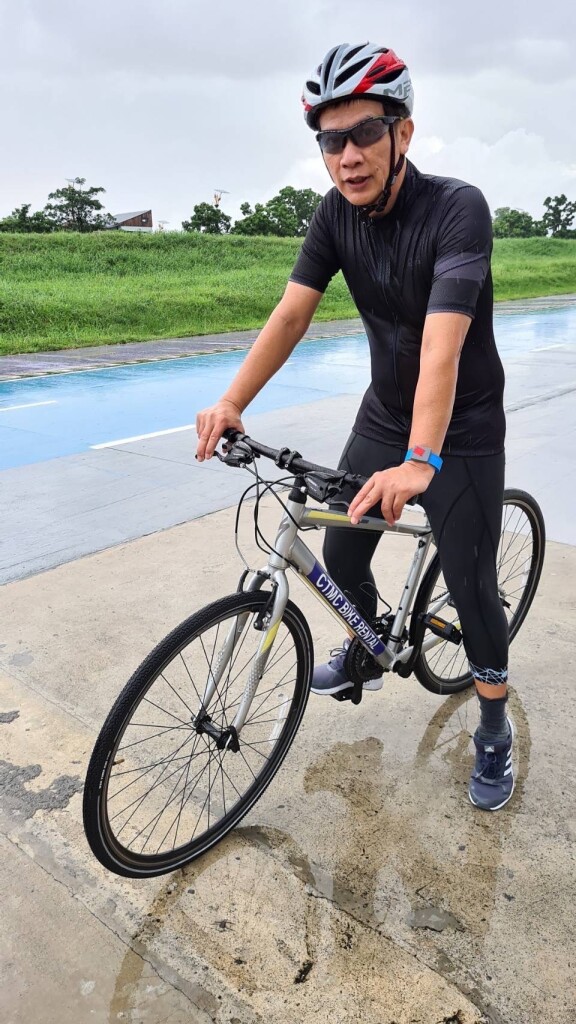
Enjoying cycling
THE PANDEMIC HAS BEEN A TIDAL WAVE WORLD-OVER, WITH RIPPLE EFFECTS STILL TO BE EXPERIENCED. IN YOUR VIEW, WHAT ARE SOME OF THE OPPORTUNITIES AND/OR CHALLENGES THAT LAW FIRMS ARE FACING, OR WILL FACE, POST COVID-19?
During the pandemic we were able to work normally with the ability to work remotely. The challenge this presented was providing mutual support and mentoring while not working in physical proximity in the office. Communication during meetings, interactive training and casual conversations were also more challenging. Therefore, with the end to working from home we are now focused on developing our firm community and culture in the office. For example, we are now investing in training weekends for all our associates and holding in person office activities again. Despite the “return to normal” we are still experiencing a number of COVID cases and, therefore, still have to maintain procedures to minimise the spread of COVID at work. The pandemic continues to impact on our clients and the broader economy. Therefore, we have to continue to be mindful of the ongoing requirements of clients and planning in an unpredictable economic environment.
IN YOUR EXPERIENCE, HOW HAVE THE ROLES OF LEGAL COUNSEL, IN GENERAL, AND OF AN MP, IN PARTICULAR, CHANGED OVER THE PAST 10 YEARS? ARE THERE ANY FURTHER DEVELOPMENTS YOU HOPE TO SEE IN THE FUTURE?
The fundamental role of legal counsel has not changed in the need to support our clients. However, there is understandably increasing expectation in terms of the sophistication of our advice and service delivery. Legal counsel are increasingly expected to really understand their client’s business and the challenges that they face. There is increasing expectation to develop our service delivery in terms of the range of services that we offer and how we can do so in a competitive manner. Legal counsel are expected to be more proactive to Enjoying cycling Q&A WITH JESSADA SAWATDIPONG CONTINUED PAGE 24 VOL 2 ISSUE 1, 2022 IHC MAGAZINE alerting clients to regulatory changes on the horizon, which may present opportunities or increase risk.
As an MP I will have many issues to deal with on a daily basis while planning ahead. I have overall responsibility, along with my co-managing partner, to ensure the long-term success of the firm and the success of each individual within the firm. I focus on creating a supportive environment in which each individual can thrive, but also ensure that collectively we are meeting the needs of our clients and succeeding as a business.
Over the past 10 years, as with many industries, the business environment for legal service providers has become increasingly competitive along with an increasing “war for talent”. We have seen a dramatic change in the use of technology at work but also expectations in terms of working environment, working practice and the need to support the community and promote diversity. I support these developments which will continue to make legal careers attractive and legal service providers relevant to their clients and society.
WHILE THE ROLE OF AN MP COMES WITH GREAT RESPONSIBILITY, IT BRINGS ITS BENEFITS TOO. WHAT HAVE SOME OF YOUR MOST REWARDING MOMENTS BEEN SERVING AS MP AT CHANDLER MHM?
In general, nurturing our young lawyers and having a positive role in their development is very rewarding. Overseeing the recent rapid growth of Chandler MHM to become one of the largest law firms in Thailand as a co-managing partner has also been very rewarding. Milestones have included overseeing the successful integration of Chandler & Thong-ek and Mori Hamada & Matsumoto. It’s also rewarding to see our lawyers and firm win numerous awards reflecting appreciation in the market for the service we have provided.
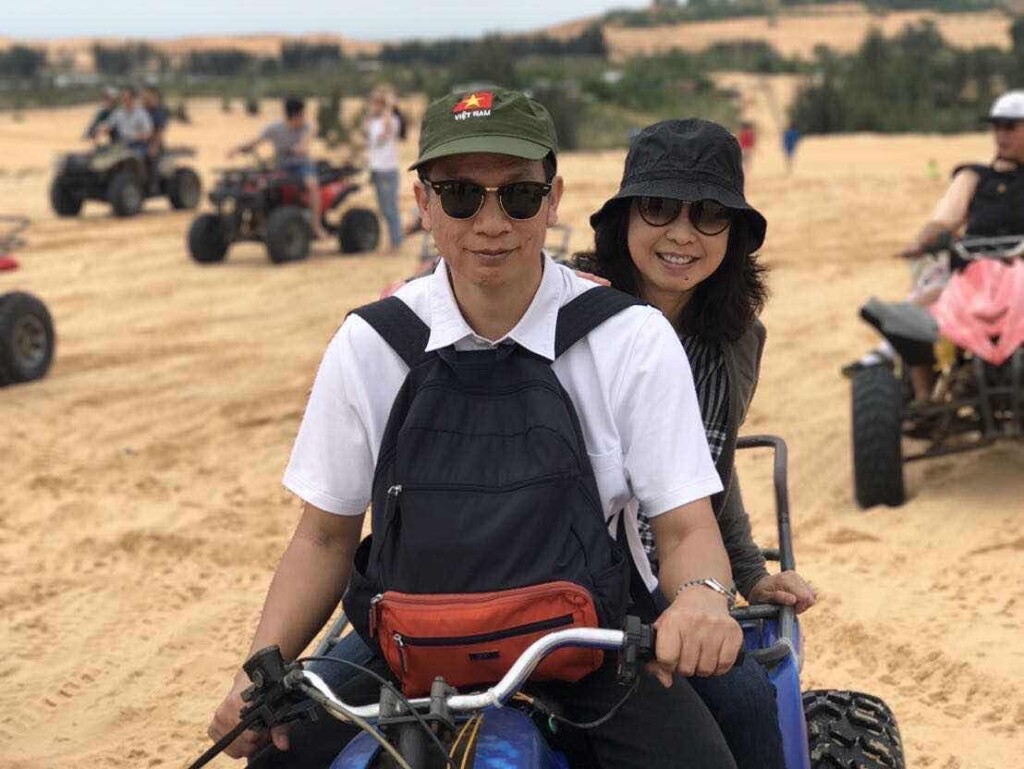
A moment of fun
EVEN THE MOST SUCCESSFUL LAWYERS NEED SOME DOWN TIME! DO YOU HAVE ANY INTERESTS/HOBBIES THAT HELP YOU RELAX AND UNWIND OUTSIDE OF WORK?
Mostly I like to spend quality time with my family which helps me to relax outside of work.
FINALLY, WHAT ADVICE WOULD YOU GIVE TO A BUDDING LEGAL MIND ON BUILDING AN IMPACTFUL CAREER?
It’s important for young lawyers to find good mentors to work with to guide them. Another suggestion would be to think long term. Build strong relationships with junior peers at clients and your firm. As you become more senior, so will they. Have a curious mind and never stop learning and developing. It’s important to remember that developing soft skills, such as negotiation skills, is also as important as strong legal technical skills. It’s also important to remember that as a professional, others will have high expectations of you in terms of your integrity and ethics. Overall, becoming a respected professional takes dedication, time and effort, but the reward will be seeing the positive impact you have in supporting your clients, colleagues and society.
This article was published in the September, 22 issue of the IHC Magazine. To read the fill magazine, please click here


